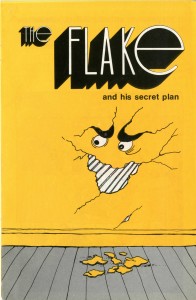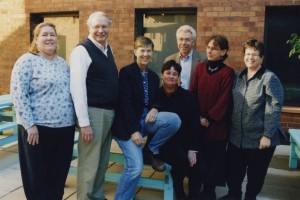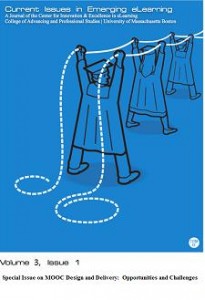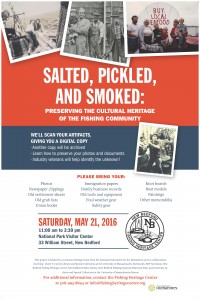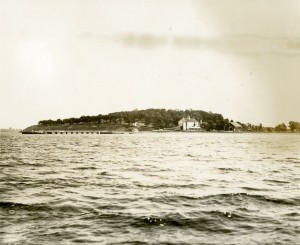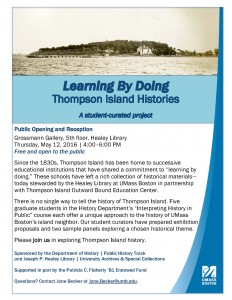 Post by Corinne Bermon, Archives Assistant
Post by Corinne Bermon, Archives Assistant
University Archives & Special Collections in the Joseph P. Healey Library at the University of Massachusetts Boston is pleased to announce that the records of Boston Urban Gardeners (or BUG) have been reprocessed and newer accessions have been added to the collection. This collection documents a range of activities, projects, and publications from 1891 to 2004, with the bulk of the records spanning 1976 (when BUG was founded) to 1989. The finding aid for this collection has been updated and is available here.
The City of Boston has a number of well-established community gardens, with over 50 acres that have helped urban dwellers feed themselves and their neighborhoods since the early nineteenth century. These dedicated urban green areas furnish residents with fresh produce, plants, and flowers. The original community gardens founded around the city provided food supplements for low-income families and senior citizens and offered space for community organizing and gatherings.
Boston Urban Gardeners, founded in 1976, began as a project in the modern urban agriculture movement, especially in making the connections between urban food access, land use, affordable housing, desegregation, and other issues. Founders Charlotte Kahn and Wagner and Ed Cooper understood that “because urban gardening is so empowering, it is inherently political.” BUG was launched by people who lived in inner-city neighborhoods and most board members were residents and gardeners themselves.
Almost immediately, BUG’s activities began to broaden beyond gardening to the larger social, economic, and political issues that reflected the concerns of its founders, staff, and board members in their surrounding neighborhoods. The list of projects sponsored by BUG is impressive in its scope: community gardens, play-lots, wildflower meadows, a job training program in landscape contracting and management, studies for the landscape of public housing, low maintenance landscapes for highway rights-of-way, and an open space study for Roxbury.
Among the projects BUG instituted were Lead in the Soil and Project HUMUS (Help Us Make Urban Soil). Both of these initiatives focused on helping communities learn about their immediate environments. Lead in the Soil educated citizens on the risks of heavy metals in both indoor and outdoor environments through pamphlets, articles, and newsletters. The collection in University Archives & Special Collections at UMass Boston offers a first-person view into this project, with BUG’s staff files documenting their work on the task force. In tandem with the Lead in the Soil project, Project HUMUS (see image above) worked with the Division of Land Use of the Massachusetts Department of Food and Agriculture to attempt to create a large-scale urban composting site to provide rich soil to urban gardens and a clean waste disposal facility. This series in the collection contains BUG’s compost project staff’s files which document the project from 1978 to 1982.
In 1990, BUG conveyed its funds and properties to the Boston Natural Areas Network (BNAN), which is now an Affiliate of The Trustees of Reservations.
The BUG records consist of files kept by project and regular staff and include annual reports and other reports, proposals, correspondence, by-laws, minutes, articles, newsletters, photographs, and leaflets/pamphlets, material published by BUG, flyers, clippings, contracts, maps, plans and drawings.
View a map of Boston’s Community Gardens here.
View the finding aid for the Boston Urban Gardeners Records here.
For questions about this collection or to schedule a research appointment, please contact library.archives@umb.edu or 617-287-5469.
University Archives & Special Collections in the Joseph P. Healey Library at UMass Boston collects materials related to the university’s history, as well as materials that reflect the institution’s urban mission and strong support of community service, notably in collections of records of urban planning, social welfare, social action, alternative movements, community organizations, and local history related to neighboring communities.
University Archives & Special Collections welcomes inquiries from individuals, organizations, and businesses interested in donating materials of an archival nature that that fit within our collecting policy. These include manuscripts, documents, organizational archives, collections of photographs, unique publications, and audio and video media. For more information about donating to University Archives & Special Collections, click here or email library.archives@umb.edu.


